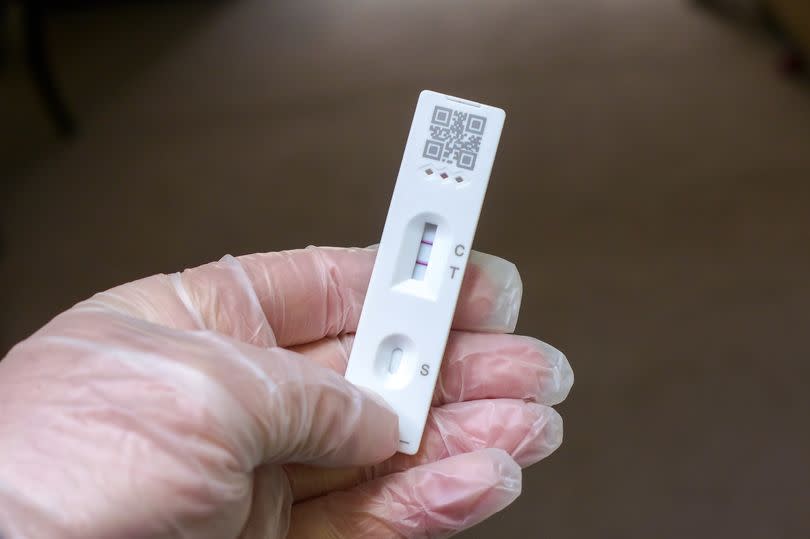The symptoms to look out for as new Covid variants hit the country amid talk of 'summer wave'

During a summer packed with events and festivals, new Covid variants have hit the UK. There are concerns about an uptick in coronavirus cases, following a recent rise in people being admitted to hospital with Covid.
It comes as three new variants have been reported in the UK. Officials say they they were responsible for 40 per cent of all Covid cases in April, while infections have been on the rise since.
The variants are known as KP.1.1, KP.2 and KP.3. Together, they are part of the FLiRT group of variants. These variants are considered to be more aggressive, and have already been sweeping across the United States.
READ MORE: Convicted child killer Lucy Letby GUILTY of attempting to murder baby girl
Dr Steven Furr, president of the American Academy of Family Physicians, told NBC News: "Every week, we test someone for Covid who I didn’t think had it who tests positive. Then we have others who I’m pretty sure have Covid who test negative... it’s really hard to separate Covid from any other respiratory illness right now."
In the UK, Covid cases are also on the rise. According to UK Health Security Agency (UKHSA) data, positive cases rose by 33.5 per cent in the week up to June 19.

Meanwhile, the BBC has reported that Covid hospital admissions went up to 3.31 per 100,000 people in the week up to June 16, compared to 2.67 per 100,000 a week earlier. The UKHSA says it is continuing to assess the severity of the new Covid variants.
It adds that there is no change to public health advice at this time - with people urged to stay at home if possible when they are unwell with Covid. The latest NHS advice says that Covid cases can include the following symptoms:
a high temperature (hot to touch on your chest or back) or shivering
a new, continuous cough (coughing a lot for more than an hour, or at least three coughing episodes in 24 hours
a loss or change to your sense of smell or taste
shortness of breath
feeling tired or exhausted
an aching body
a headache
a sore throat
a blocked or runny nose
loss of appetite
diarrhoea
feeling sick or being sick
The NHS website adds: "The symptoms are very similar to symptoms of other illnesses, such as colds and flu. Most people feel better within a few weeks, but it can take longer to recover. For some people, it can be a more serious illness and their symptoms can last longer."

 Yahoo News
Yahoo News 
